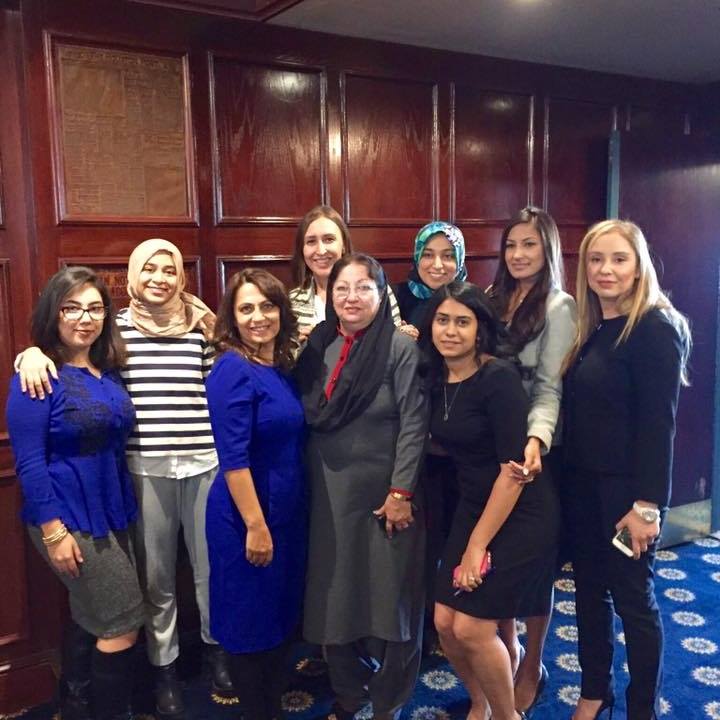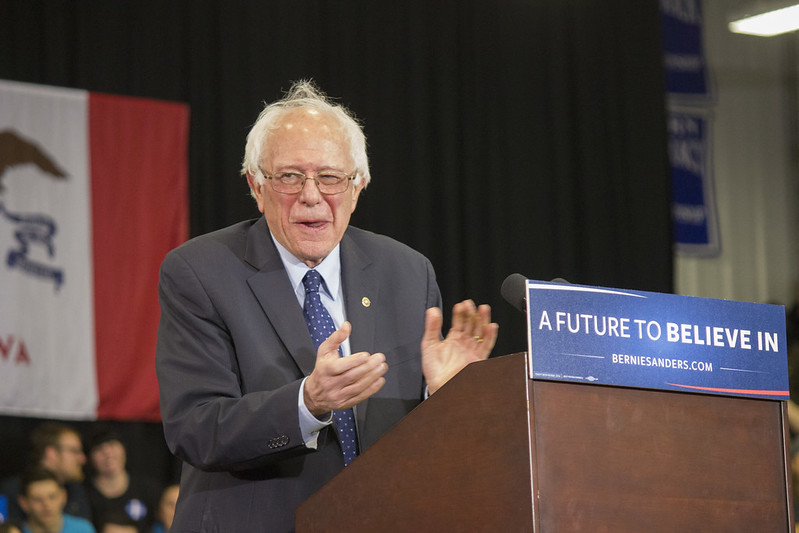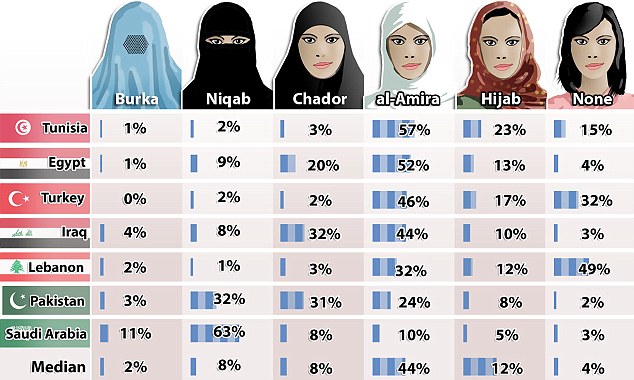My story in this election year isn’t that different from other American Muslim stories. My kids had seen Donald Trump on television spouting his plan to ban Muslims. One of my twin boys, Yonas, came to me and said “Mama, where will we go if Donald Trump wins? I will miss my friends.” While this was heartbreaking, this didn’t move me to action. I am a lawyer and I knew that Trump couldn’t remove us from the country. But he could remove us as vital members of the community and dismiss our loyalty to our nation. And worst of all, he could make my child believe that he, a kid whose grandmother is a card-carrying member of the Daughters of the American Revolution—making him eligible for membership as a child of the American Revolution—didn’t belong here.
Unacceptable.
I began to look for ways I could be involved in the political process and let my voice be heard. I also knew that my voice by itself would get lost and even if I raised millions of dollars, that would only benefit me.
The problem was bigger than me. It was bigger than being empowered, because I am empowered. Most of the Muslim women I know are empowered. We are leaders in our workplace and communities. But that didn’t matter. What we were lacking was money and political focus.
So, I did what any American would do. I started a political action committee (PAC).
This should have been completely uncontroversial. There are thousands of PACs. Literally. Thousands. Most of them don’t have a dime to their name and they don’t do anything. It’s free and easy to file with the FEC. The form is just a few pages long—you pick a type of committee and then a name. Sure, there are lots of rules to follow once you raise money. But filing is easy.
One lovely morning in August of this year, that’s what I did. That same morning I took to social media and proclaimed that I’d just formed the American Muslim Women Political Action Committee. A childhood friend called me. I hadn’t spoken to her for years but she’d been doing fantastic things for Afghan women and had been a changemaker for Muslim women before I even knew changemaker was a real word. She asked me one thing: “Do you know what you’ve gotten yourself into?”
I answered her honestly. “Nope.”
She laughed and said “This will be huge and I want to help.” Later that day a reporter from the Atlantic magazine called. She’d seen the filing and asked if I knew that there was not another PAC devoted to Muslim women. She wrote a piece about Muslim women in this election cycle, and a movement was born.
American Muslim women have been an essential part of the fabric of this nation—from policy positions to PTA—we’ve done it all. But what we haven’t done is demonstrated that we will harness the power of money and votes to influence elections and policy.
This is brand new for us. It is the next wave of Americans coming into their own after the first generation. Our parents made sure we had every opportunity to get an education, to become productive members of this society. Now we can move forward and take an active role in civic engagement – asking politicians pointed questions about issues specifically affecting the Muslim community but also impacting foundational values of this country.
We want to talk about how refusing to take in refugees because of their religion is contrary to our American values; using secret lists to deny people a Constitutional right violates due process (no fly/no buy); and above all, how American Muslim women want what all women want—access to good healthcare, economic stability, decent schools for their kids. It’s time for us to be part of the discourse that directly impacts our lives.
Our committee was formed with politics in mind, but we’ve become much more than that. Friendships have formed and walls have started to come down. We are talking about the issues we have in our communities and despite ethnic divides, our stories are so similar and this group has given us the opportunity to share them with each other. These conversations also help us narrow our focus when considering policy and candidates.
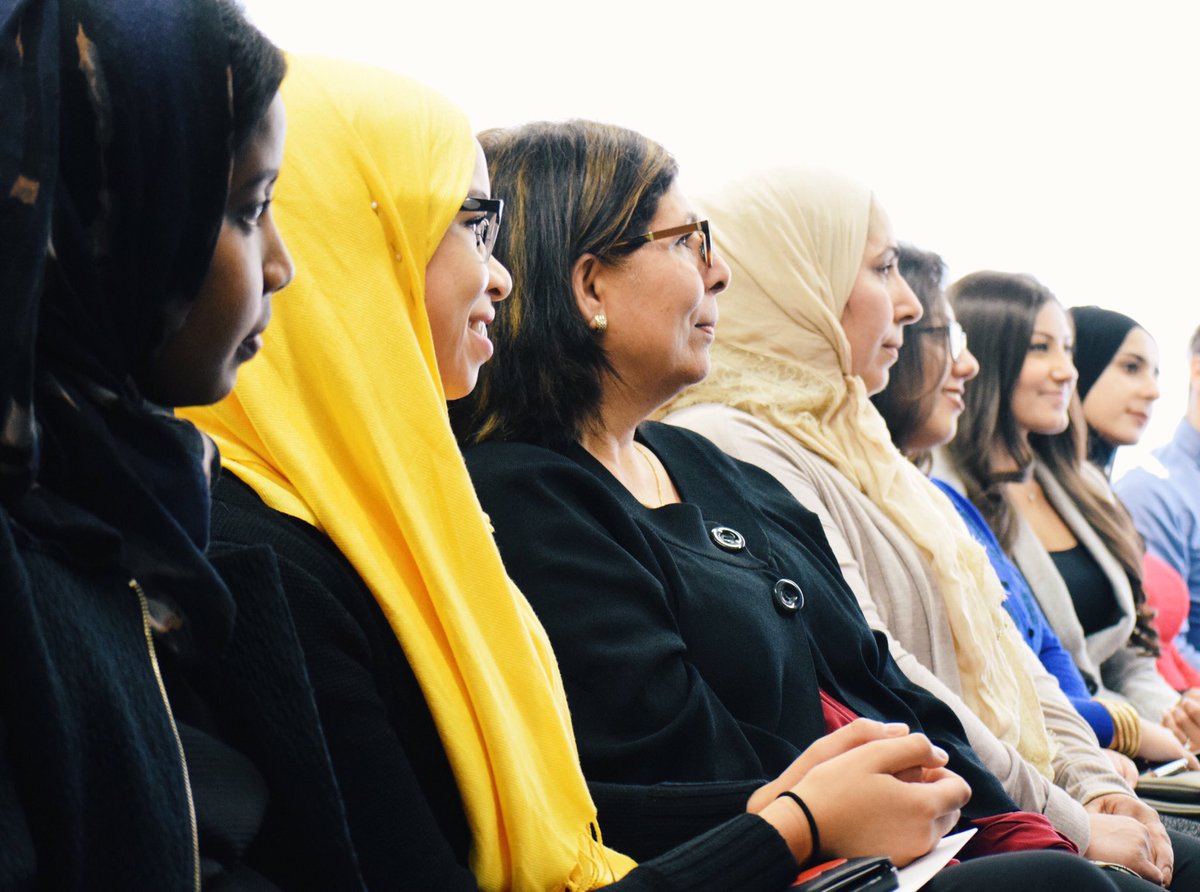
A gathering of women at an AMWPAC event.
So far we have registered voters and focused on get-out-the-vote efforts, raised money, and mobilized and organized young women. We have endorsed Hillary Clinton and Luann Bennett in Virginia’s 10th district for Congress.
Once the election is over, we will be expanding our horizons and looking towards midterm elections. We would like to focus on training Muslim women to run for political office. It is easy to get excited about Presidential election years, but if we are to really keep our candidates accountable, we must be focused on each election cycle. This will be the real challenge for us.
The ultimate goal is to be ready for 2020 and to make sure that no candidate ever feels free to speak about American Muslims the way Trump has. It is our job to be the watchdogs over our elected officials and to make sure they remember they work for us. Find out more about the American Muslim Women PAC here.
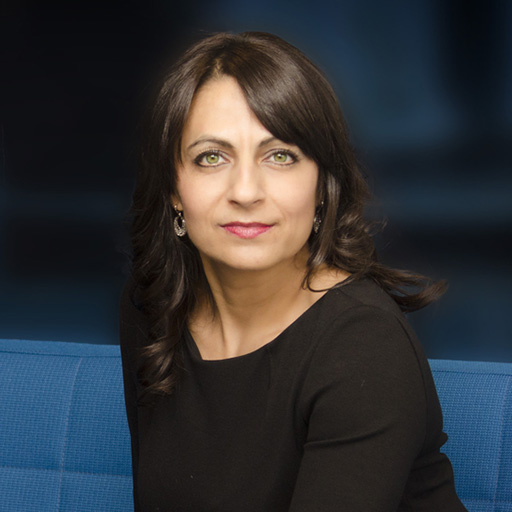
Mirriam Seddiq, the founder of the American Muslim Women PAC, was born in Kandahar, Afghanistan and emigrated to the United States when she was 18 months old, well before the Soviet invasion. She is a criminal defense and immigration attorney who lives in Northern Virginia and practices in Maryland and New York State as a criminal defense lawyer. Mirriam is a frequent speaker on the intersection of immigration and criminal law. She’s been consulted as an expert on how criminal convictions affect immigration consequences.
Mirriam’s family was almost featured on the PBS Special “Frontline” after 9/11 but they were too normal.

